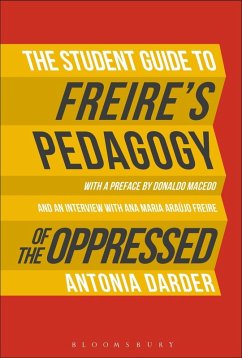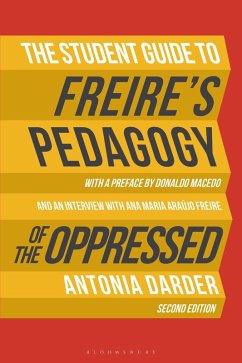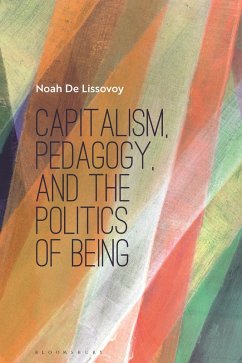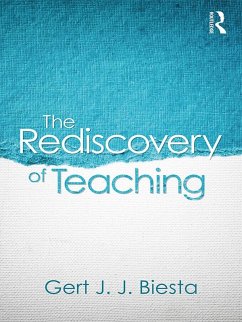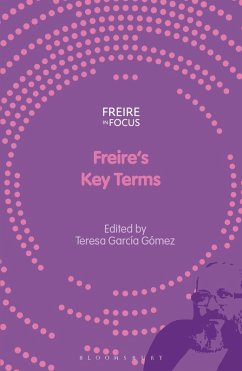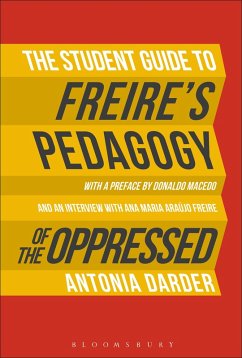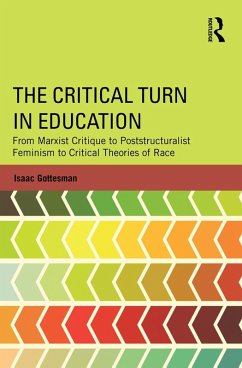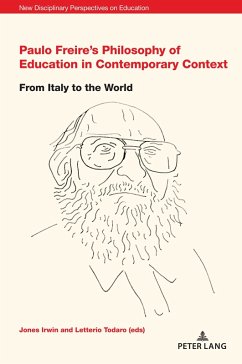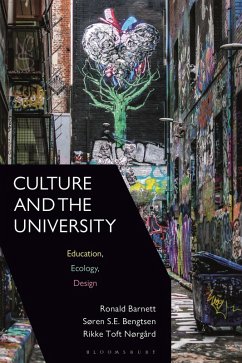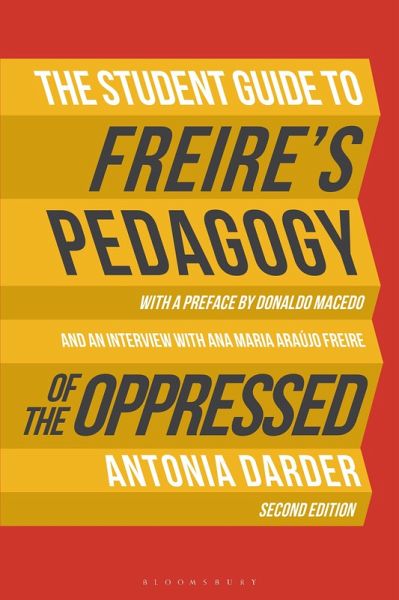
The Student Guide to Freire's 'Pedagogy of the Oppressed' (eBook, PDF)
Versandkostenfrei!
Sofort per Download lieferbar
12,95 €
inkl. MwSt.
Weitere Ausgaben:

PAYBACK Punkte
6 °P sammeln!
Now in its 2nd edition, this book serves as companion to Freire's seminal work, supporting the application of his pedagogy in enacting emancipatory educational programs in the world today. The new edition includes a new chapter called Teaching Pedagogy of the Oppressed with additional dialogue questions and activities designed to support students and instructors. It also includes an updated Bibliography and further reading list. Antonia Darder closely examines Freire's ideas as they are articulated in Pedagogy of the Oppressed, beginning with a historical discussion of his life and a systemati...
Now in its 2nd edition, this book serves as companion to Freire's seminal work, supporting the application of his pedagogy in enacting emancipatory educational programs in the world today. The new edition includes a new chapter called Teaching Pedagogy of the Oppressed with additional dialogue questions and activities designed to support students and instructors. It also includes an updated Bibliography and further reading list. Antonia Darder closely examines Freire's ideas as they are articulated in Pedagogy of the Oppressed, beginning with a historical discussion of his life and a systematic discussion of the central philosophical traditions that informed his revolutionary ideas. Darder explores Freire's fundamental themes and ideas, including issues of humanization, teacher/student relationship, reflection, dialogue, praxis, and his larger emancipatory vision. The book also includes a chapter-by-chapter close reading of the text with sample questions to prompt discussion and engagement with Freire's ideas, as well as a new interview with Freire's widow, Ana Maria Araújo Freire, and a preface by Donaldo Macedo.




